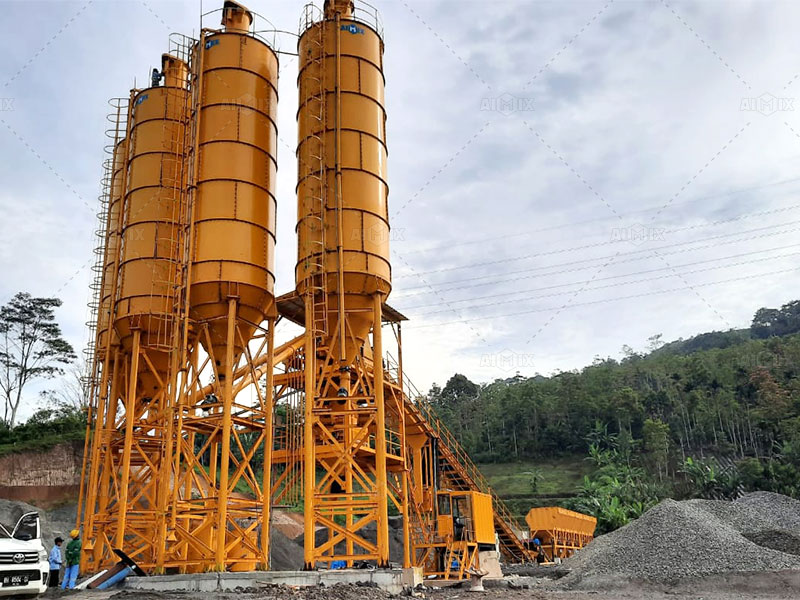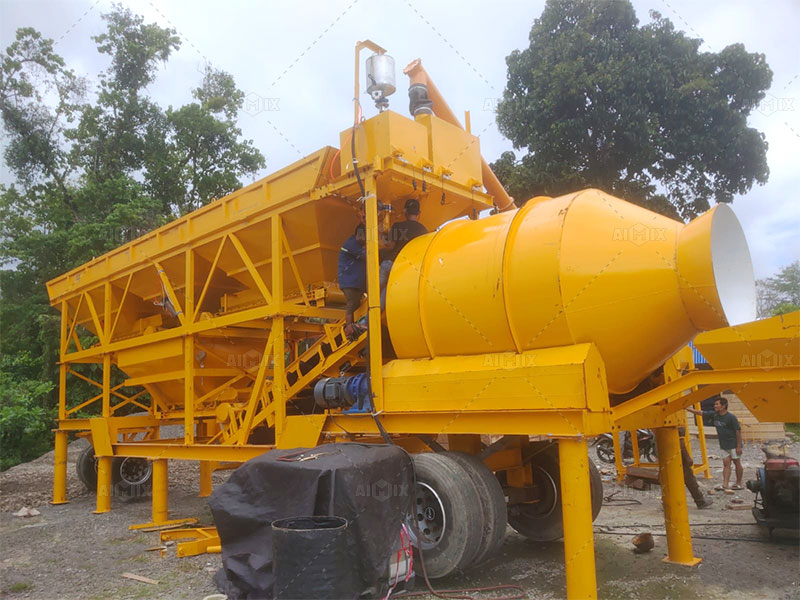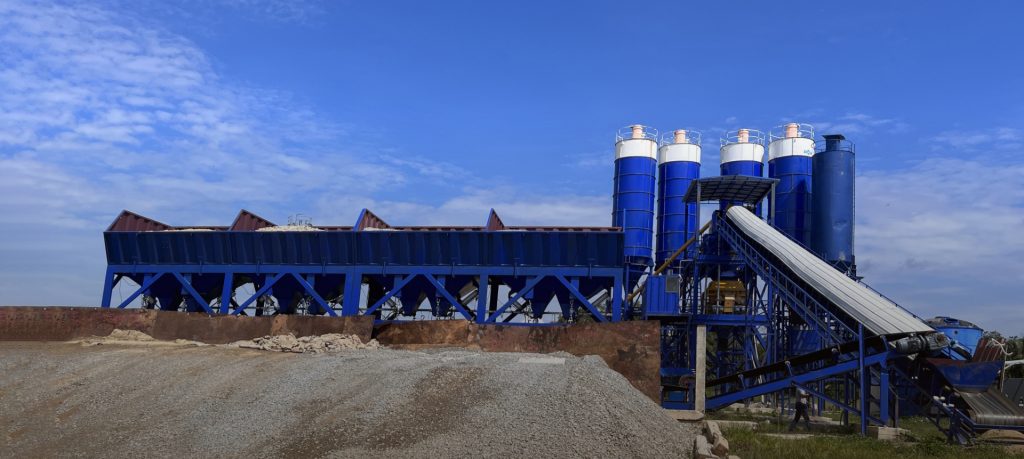The operation of a concrete batching plant requires skill, precision, and a deep understanding of the machinery involved. As the heart of concrete production, the concrete batching plant demands meticulous attention from operators to ensure the consistent and efficient delivery of high-quality concrete.
Thorough Training and Familiarization:
Before taking on the responsibility of operating a concrete batching plant, operators should undergo comprehensive training. This training should cover not only the technical aspects of the plant but also safety protocols, emergency procedures, and troubleshooting techniques. Familiarity with the specific model of the concrete batch plant for sale being operated is crucial, as variations exist among different manufacturers and designs.

Prioritize Safety at All Times:
Safety is paramount in the operation of any heavy machinery, and a concrete batching plant is no exception. Operators should strictly adhere to safety guidelines and wear appropriate personal protective equipment (PPE). Regular safety briefings and periodic refresher courses should be conducted to reinforce safety awareness among operators. This includes awareness of potential hazards, proper handling of equipment, and emergency response procedures.
Understanding the Control System:
Concrete batching plants are equipped with sophisticated control systems that govern the mixing process, ingredient proportioning, and overall plant operation. Operators must have a comprehensive understanding of the control system to ensure precise and accurate batching. This includes familiarity with the user interface, and settings, and the ability to troubleshoot common issues that may arise during operation.
Routine Maintenance Checks:
Regular maintenance is crucial for the smooth operation and longevity of a small concrete batching plant. Operators should conduct routine checks on various components such as conveyor belts, mixer blades, weighing systems, and electrical connections. Any signs of wear, tear, or malfunction should be addressed promptly to prevent downtime and maintain the efficiency of the plant.
Calibration of Weighing Systems:
Accurate weighing is essential for producing high-quality concrete. Regular calibration of weighing systems is necessary to ensure that the plant is accurately measuring and dispensing the correct proportions of raw materials. Calibration should be performed according to the manufacturer’s guidelines and at specified intervals to maintain precision in the batching process.

Optimizing Raw Material Usage:
Efficient use of raw materials not only contributes to cost savings but also aligns with sustainable construction practices. Operators should be trained to optimize the use of aggregates, cement, water, and additives to minimize waste. This includes monitoring and adjusting mix designs as needed to meet project specifications while avoiding unnecessary excesses.
Effective Communication with Other Team Members:
Communication is a key factor in the success of any construction project. Operators should maintain effective communication with other team members, including concrete truck drivers, site supervisors, and quality control personnel. Clear communication ensures that concrete is delivered to the right locations, in the right quantities, and meets the necessary quality standards in a mini concrete batch plant for sale.
Adaptability to Changing Conditions:
Construction sites are dynamic environments, and operators must be adaptable to changing conditions. This includes adjustments to production schedules, mix designs, and responding to unexpected challenges. An adaptable operator can make quick decisions to address issues and keep the batching plant running smoothly under varying circumstances.
Environmental Considerations:
Operators should be mindful of the environmental impact of concrete production. This includes minimizing dust emissions, controlling noise levels, and implementing water recycling systems where possible. An environmentally conscious approach contributes to sustainable construction practices and aligns with industry standards for responsible concrete production.
Continuous Learning and Professional Development:
The field of concrete production and batching plant technology is continually evolving. Operators should actively seek opportunities for continuous learning and professional development. Staying informed about advancements in technology, industry best practices, and emerging trends ensures that operators remain at the forefront of their field, contributing to improved efficiency and performance.
Conclusion:
Operating a concrete batching plant is a demanding and responsible task that requires a combination of technical expertise, attention to detail, and a commitment to safety. By following these tips, operators can enhance their skills, contribute to the success of construction projects, and play a crucial role in delivering high-quality concrete to the built environment. The effective handling of mobile batching plants is not just a job; it is a skilled craft that contributes to the foundation of sturdy and resilient structures.
